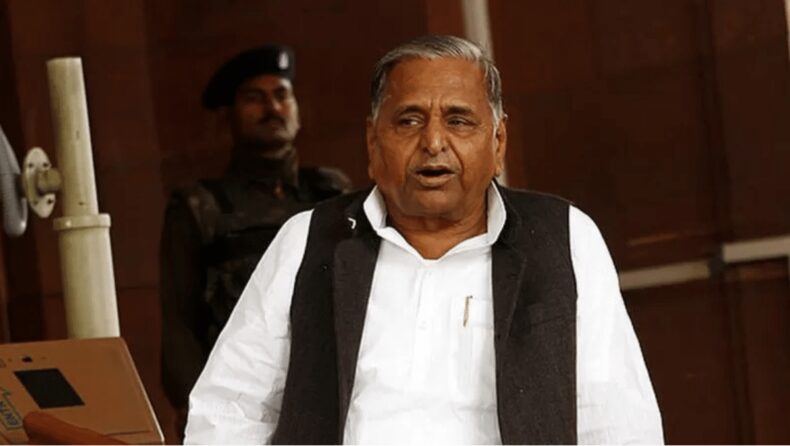Mulayam Singh Yadav, a veteran politician from India, has died at the age of 82.
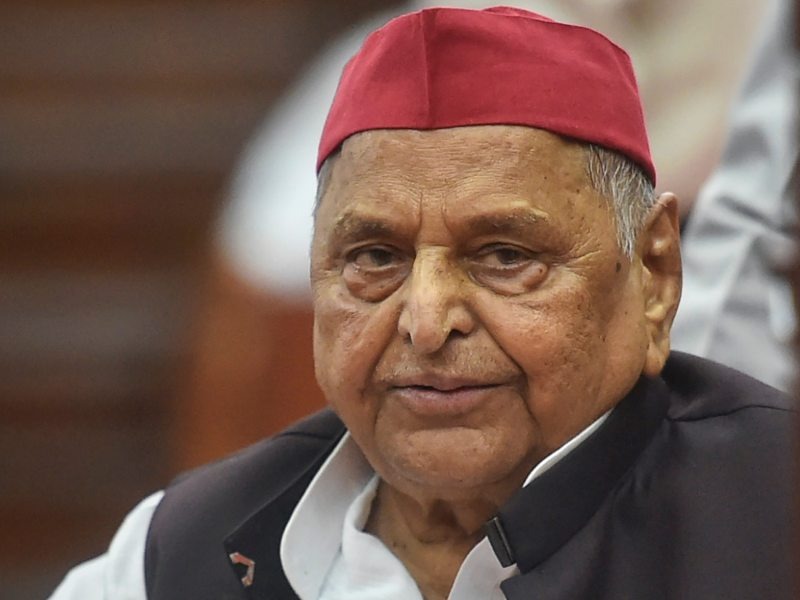
The former national defence minister was hospitalized for more than a week at a hospital close to Delhi.
He was placed on a ventilator after his condition became worse. On Monday morning, Akhilesh Yadav, his son as well as political heir apparent, announced his passing.
One of the pillars of Indian politics has received tributes from politicians from all parties as well as from prominent people and individuals of the general public.
Yadav had been ill for a few years and had spent time in and out of health facilities frequently. He was a sitting member of parliament, but he wasn’t really involved and was hardly ever seen at open meetings.
While his regional Samajwadi Party (SP), currently led by Akhilesh Yadav, remains a significant participant in Indian politics, he leaves behind a rich and contentious legacy.
Mulayam Singh Yadav: The highs and the lows of his lengthy political career
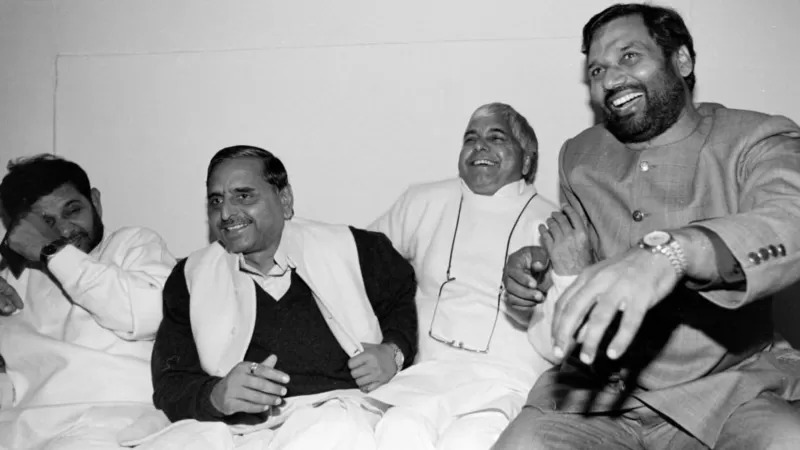
A generation of politicians, including Mulayam Singh Yadav, emerged from large-scale movements. His political manoeuvres, which were reputed to be masterful, managed to keep alike allies and opponents on their toes.
To stay pertinent during his impressive career, he cleverly blended local and national politics.
His tenacity and ability to recover from what seemed like insurmountable political failures made him a powerful political foe in Uttar Pradesh, the most populous state in India.
He held both positions over his long political career, including three times as the state’s chief minister and one as India’s defence minister. He had aspirations to lead India as prime minister, as do the majority of prominent leaders, but that desire was never realised.
Mulayam Singh Yadav: The leader of the Masses
He entered politics at the age of 15 after receiving his teaching training in his hometown hamlet in central Uttar Pradesh. He participated in many movements led by renowned socialist Ram Manohar Lohia after being influenced by his ideas.
He fought for underprivileged castes and minorities early in his career since they continue to be the foundation of his party’s support.
When he ran for office in 1967 as a candidate for the socialist party, he was elected as the state assembly’s youngest member. He won elections in 1974 and 1977, each time running as a different party’s candidate but remaining an ardent socialist.
The 1980 elections, in which he lost for the first time during a surge in endorsement for the Congress party, were emblematic of the erratic nature of his career.
Nevertheless, he was able to gain admission to the state legislature’s upper house, where he quickly advanced to the position of opposition leader.
https://www.samajwadiparty.in/
A few years later, he made the uncommon decision to run for office in the state legislature’s lower house as well, earning the reputation of becoming the sole leader to have served as the opposition’s leader in both houses.
From 1989 to 1991, he served as Uttar Pradesh’s chief minister for a brief but eventful period.
Mulayam Singh Yadav: Navigating through the Indian Political arena
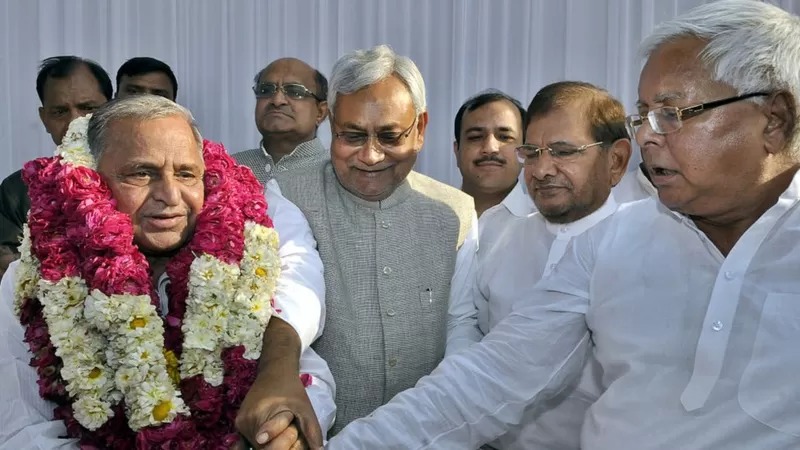
His decision to direct security personnel at the Ayodhya mosque to open fire on primarily Hindu demonstrators who said the mosque had been constructed on top of a Hindu temple in October 1990 cost him dearly in the 1991 elections.
Both Hindus and Muslims were unhappy with his behaviour during the standoff; the former accused him of being overly forceful while the latter claimed he did not do enough to prevent Hindu mobs from going on the rampage.
Yadav didn’t become a hero among Muslims until the mosque was demolished in December 1992, at which point they gave him credit for preserving the shrine in 1990.
After the 1994 elections, Yadav returned to power in Uttar Pradesh after a protracted period of presidential rule. This time, he had the backing of a new alliance, the Bahujan Samaj Party (BSP).
However, it was a short-lived relationship. With the help of the Hindu nationalist Bharatiya Janata Party, BSP leader Mayawati upstaged him in June 1995 and became the country’s chief minister instead (BJP).
Although Mr Yadav found it difficult to accept his disappointment with Mayawati, his period in the electoral wilderness remained brief.
Mulayam Singh Yadav and unfulfilled ambitions:
He gained his first breakthrough in central politics in the summer of 1996 when HD Dewe Gowda nominated him as India’s defence minister in a coalition government led by the United Front.
As ambitious as ever, Yadav even attempted to become prime minister at one point, but while constantly being at the centre of political intrigue, he never had a solid support base.
When the Samajwadi Party won back control of Uttar Pradesh in 2012, an ill Mulayam Singh Yadav handed the reins to his son Akhilesh. However, when family divisions grew, he startled everyone in 2016 when he dismissed Akhilesh from the party, just before the pivotal UP assembly elections in 2017. After the father and son reconciled, Akhilesh became the Samajwadi Party’s power centre.
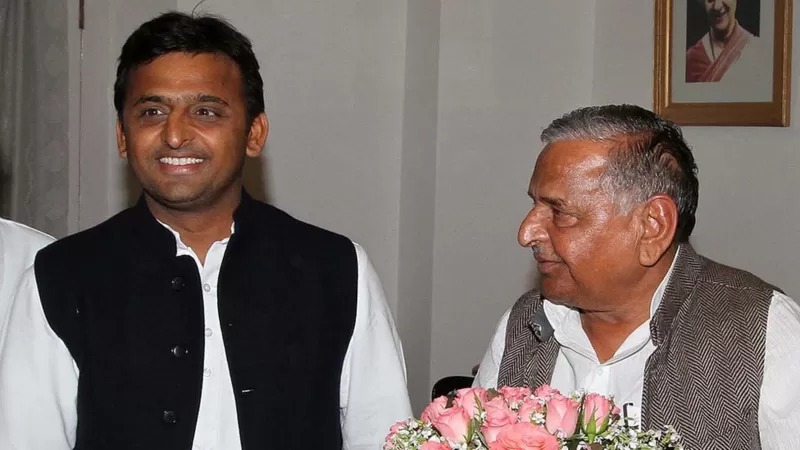
The manner he managed the family issue only served to solidify his reputation as an unconventional politician who, at various points in his career, was at odds with a broad range of Indian parties.
Through his lengthy and diverse political career spanning across decades, Mulayam Singh Yadav has left a void in the Indian political arena that will always respect his tireless efforts to sustain his position as the leader of the masses. As the nation mourns the death of India’s veteran politician, let us recollect and pay our tributes for his endeavor of changing the political arena forever.







